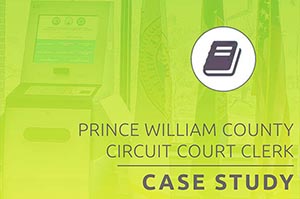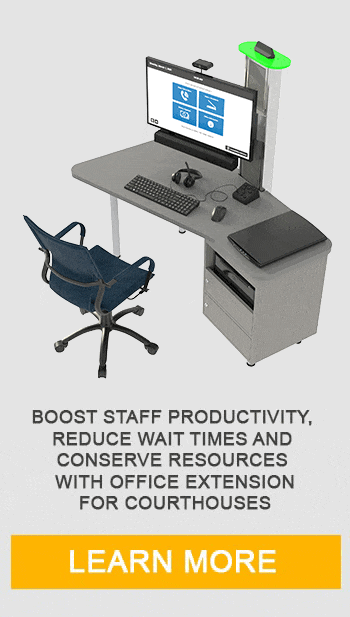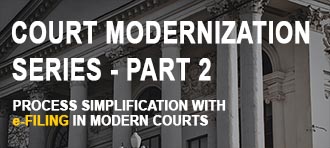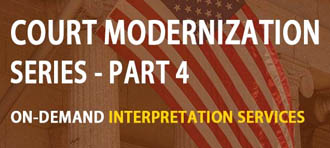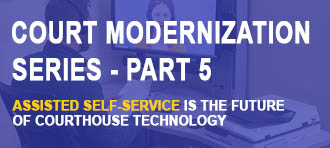The recent news about data privacy breaches on social media and the cyber-attacks in Atlanta Georgia, heighten public concern for ensuring security and minimizing risk. In the development of computer kiosk software and hardware it is critical to make strides to enhance kiosk security, protect users and eliminate vulnerabilities as the self-service industry grows.
Ransomware Attack Cripples Atlanta

Although police, fire, and other emergency response services remained operational, the city’s 472,522 residents struggled with a litany of impacts on their daily lives.
- Residents were unable to make online payments on everything from water bills to parking tickets.
- Police officers and city employees were filling out all reports by hand.
- All Municipal Court proceedings were postponed indefinitely.
It is difficult to quantify the overall monetary cost to the city of a ransomware attack of this magnitude, but similar attacks have saddled victims with multi-million dollar losses. As was the case with the Erie Country Medical Center in Buffalo, NY, who was targeted with ransomware in 2017 and has spent $10 million dollars recovering from the attack after they refused to pay the attackers the $30,000 they demanded.
Computer Kiosk Security
In these uncertain times, it’s more important than ever to consider the additional kiosk security steps we can take toward protecting our information from malicious intent.
One prevalent risk to data privacy can be the use of a Wi-Fi connection. As common and as useful as Wi-Fi is in the modern era, the reality is that a public Wi-Fi connection represents a gaping entry point for hackers to access any sensitive data being transferred over the network. If you are wondering how a service so common remains so vulnerable, the simple answer is, well, negligence. In most cases, there are steps that can be taken to mitigate these risks.
The largest providers of Wi-Fi hot spots in the US -the kind you would find everywhere from corner cafes to international airports, don’t require the encryption of information that travels over their networks. Because of this, anyone, be it the basement dwelling teenage hacker or agents of a hostile foreign power, can easily view and capture every step you take on the network. Security oversights like that can expose individuals, organizations, and governments to viruses, malware, ransomware, identity theft, and more.
For users and customers seeking a higher level of kiosk security, the option of using a 4G cellular modem in place of Wi-Fi connectivity is the obvious choice.
Kiosk Cellular Data Advantages

- Reduce Internet Billing
- Reliable and Steady Connectivity
- Enhanced Kiosk Security
For these reasons, more and more of our clients are opting in favor of stress free and cost effective 4G internet solutions for computer kiosk installations. With the help of a compact and efficient 4G wireless router, you can maintain high quality end-to-end internet service without exposing your kiosk network to the risks associated with a wireless internet connection. Rather than an internet service provider broadcasting a signal over a Wi-Fi router, 4G-enabled platforms connect to the net using a fully encrypted cellular connection, which by comparison is bulletproof.
Kiosk Software Data Caching
If you are entertaining concerns about having enough 4G data to meet your computer kiosk needs, it’s been shown that the vast majority of kiosk projects will use as little as 1-2 GB of data per month. To extend that even further, the data caching features of our Zamok kiosk management software suite will store a cached version of all pictures, videos, maps, and other static forms on your kiosk as opposed to downloading unchanged content repeatedly, thus saving data for other tasks. Our kiosk software “smart caching” is engineered to only update static content when necessary and never cache any personal fielded data. This feature is a kiosk performance enhancer and aids in conserving cellular data usage.
Built-In Kiosk Software Security

In our increasingly connected world, hackers and other unsavory internet dwellers are going to continue to be an unavoidable part of life. But we at Advanced Kiosks consider ourselves to be ahead of that curve and serve as the front line in the fight to protect the data of our users. Rest assured, each time we hear about a breach like the one in Atlanta, our team of dedicated engineers hits the drawing board to begin work on the next generation of kiosk security.
Thanks for taking the time to check out our blog. For questions about any of our self-service hardware and software solutions, you can connect with one of our Project Consultants by contacting us via email, or by dialing 1 (603) 865 – 1000.


